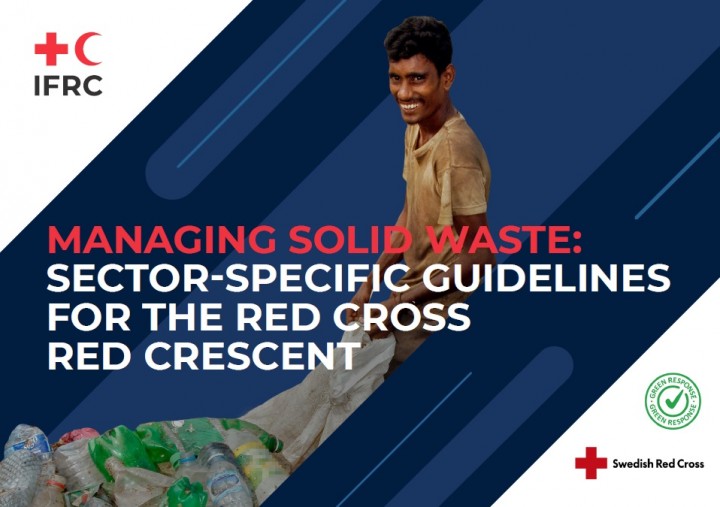Managing Solid Waste: Sector-Specific Guidelines for the Red Cross Red Crescent
Laude, C., Reynolds, G. (2020)

Published in: 2020
Pages: 120
Publisher:
IFRC
Author:
Laude, C., Reynolds, G.
Uploaded by:
SuSanA Admin
Partner profile:
common upload
810 Views
9 Downloads
There is an increasing awareness among humanitarian actors, including those within the Red Cross Red Crescent (RCRC) Movement, of the importance of improving environmental sustainability of programming and operations. Many are recognising that the deteriorating state of the environment can often be a trigger for crises and disasters. There is an urgent need to break the cycle between conflicts, disasters and environmental degradation, including reducing the environmental footprint of humanitarian action. In emergencies, solid waste generated by both the affected population and humanitarian activities can accumulate quickly and in large amounts. Along with debris from disasters, large build-ups of unmanaged waste have clear potential impacts on health and the environment.
Solid waste management (SWM) solutions need to be adapted to the emergency context and involve all sectors across the breadth and length of a humanitarian response. Contextualised, well-coordinated SWM solutions can effectively minimise negative impacts on health and the environment while enhancing opportunities for material recovery and livelihoods support.
Solid waste management often ‘falls through the cracks’ in an emergency response. It is everyone’s, yet no one’s responsibility. These guidelines attempt to break down the issue into sectoral priorities and actions, with the aim of leading to stronger waste management practices, better outcomes for affected communities and improved environmental sustainability. Multiple guidance documents on SWM already exist, including for emergency situations. However, there is an increasing demand for immediate and practical advice to sector practitioners who are not necessarily specialised in waste management.
Bibliographic information
Laude, C., Reynolds, G. (2020). Managing Solid Waste: Sector-Specific Guidelines for the Red Cross Red Crescent. IFRC
Filter tags
English Guidelines and manuals














